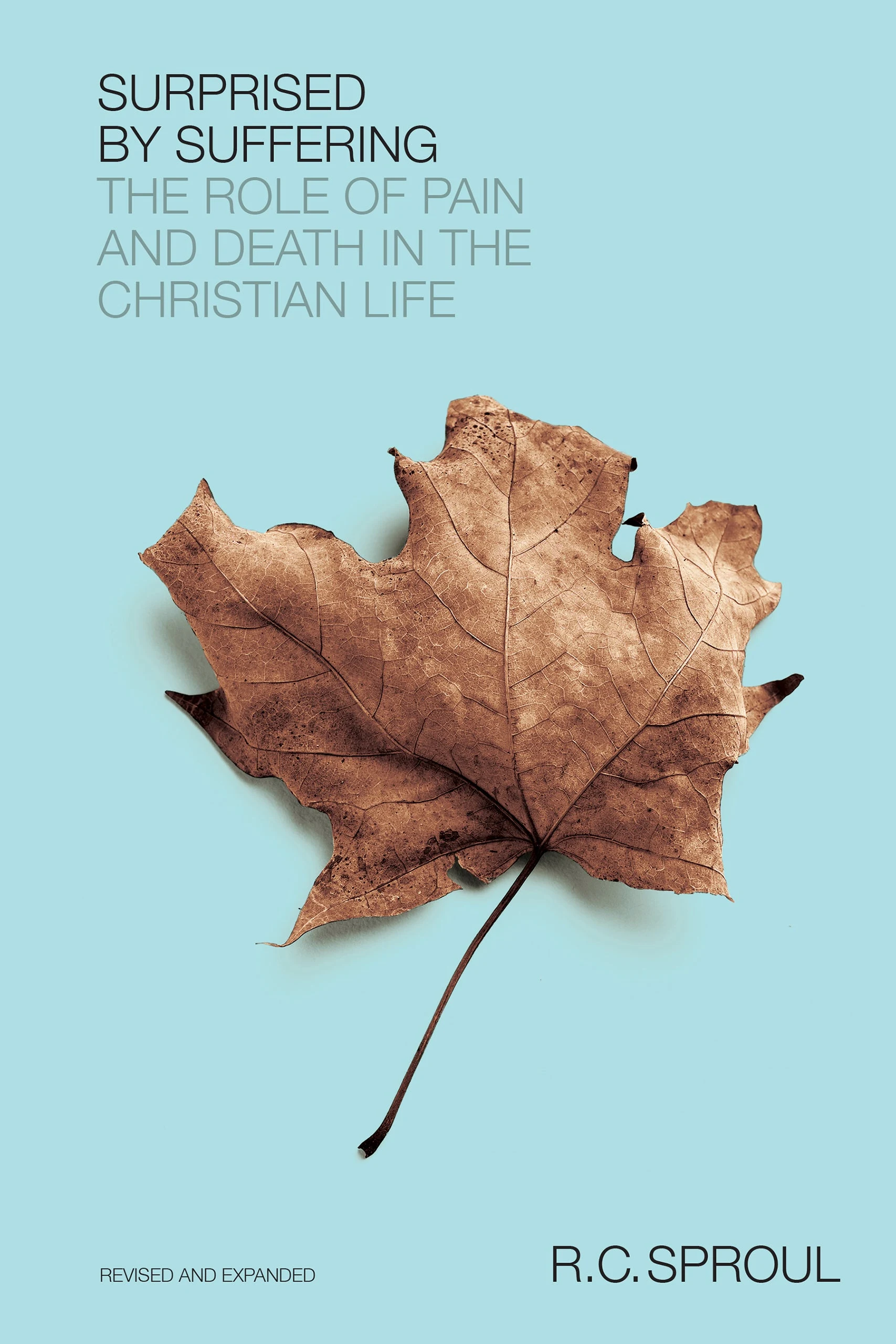Surprised by Suffering

Paul added, “We are perplexed, but not in despair.” Perplexity often accompanies suffering. When we are stricken with illness or grief, we are often bewildered and confused. Our first question is “Why?” We ask, “How could God allow this to happen to me?”
I remember the story of a distraught father who was deeply grieved by the death of his son. He went to see his pastor, and in his bewildered anger he asked, “Where was God when my son died?” The pastor replied with a calm spirit, “The same place He was when His Son died.”
There is an element of surprise connected to suffering. We learn early that pain is a part of life, but the learning process is usually gradual. I am amused by the way my three-year-old grandson handles pain. When something hurts him, he declares, “Pap-pap, I have an ‘ouch.’” He uses the word ouch as a noun. If his “ouch” is slight, a simple kiss will make it disappear. If it is more severe, he asks for an “andbaid.”
Most childhood illnesses and bruises are minor. When a child gets a stomach virus, he usually doesn’t worry about cancer. He learns quickly that the discomfort of a childhood illness is soon over. As adults, however, we move into another level of disease and pain. Though we move through stages of preparation, we are never quite ready when we are afflicted with a more serious illness.
I remember my daughter’s first visit to the hospital. She was six years old and had to have her tonsils removed. As parents, we went through all the steps of preparing her and shielding her from what was coming. We read her the children’s books about going to the hospital. We assured her that after the operation she would be allowed the treat of her favorite ice cream.
The trip to the hospital was an adventure. The pediatric wing of the hospital was brightly decorated. The nurses entertained our daughter and her roommate with toys. Her spirits were high and apprehension was at a minimum.
When the girls were taken into surgery, we awaited their return from the recovery room. I will never forget the vision of my daughter when she looked at me after she had awakened. She was a pitiful sight. Dried blood was crusted at the edge of her lips. Her face was ashen. But what was most haunting was her look of fear, shock, and betrayal. She was experiencing a new threshold of pain. It was as if she was saying to me with her eyes: “How could you? You knew it would be like this and you lied to me.” The last thing she cared about at that moment was ice cream. She was surprised by her pain, for it was not what she expected.
This passage shows how it is possible to be perplexed but not in despair. Our suffering has a purpose.
I am sure my daughter had the same questions about me as we do about our heavenly Father when sudden pain is thrust upon us. Like my daughter, we are often surprised that God allows such deep affliction to befall us. The surprise stems not so much from what God leads us to believe but from what we hear from misguided teachers. The zealous person who promises us a life free from suffering has found his message from a source other than Scripture.
In fact, Scripture admonishes us not to think that it is a strange or unusual thing that we should suffer. Peter wrote:
Beloved, do not think it strange concerning the fiery trial which is to try you, as though some strange thing happened to you; but rejoice to the extent that you partake of Christ’s sufferings, that when His glory is revealed, you may also be glad with exceeding joy. (1 Peter 4:12–13)
These words echo Paul’s statement about “filling up what is lacking” in the sufferings of Christ (Col. 1:24), a curious affirmation that we will look at more closely in the next chapter.
Peter adds these words:
But let none of you suffer as a murderer, a thief, an evildoer, or as a busybody in other people’s matters. Yet if anyone suffers as a Christian, let him not be ashamed, but let him glorify God in this matter. (1 Peter 4:15–16)
When the criminal suffers for his crime, he may be distressed, but he has no reason to be perplexed. There is no surprise that punishment should be the consequence of crime. There is shame attached to this sort of suffering.
To suffer as a Christian carries no shame. Peter concludes: “Therefore let those who suffer according to the will of God commit their souls to Him in doing good, as to a faithful Creator” (1 Peter 4:19). Here, Peter erases all doubt about the question of whether it is ever the will of God that we should suffer. He speaks of those who suffer “according to the will of God.” This text means that suffering itself is part of the sovereign will of God.
Earlier in his epistle, Peter spoke of the fruit of our suffering:
In this you greatly rejoice, though now for a little while, if need be, you have been grieved by various trials, that the genuineness of your faith, being much more precious than gold that perishes, though it is tested by fire, may be found to praise, honor, and glory at the revelation of Jesus Christ, whom having not seen you love. Though now you do not see Him, yet believing, you rejoice with joy inexpressible and full of glory, receiving the end of your faith—the salvation of your souls. (1 Peter 1:6–9)
This passage shows how it is possible to be perplexed but not in despair. Our suffering has a purpose—it helps us toward the end of our faith, which is the salvation of our souls. Suffering is a crucible. As gold is refined in the fire, purged of its dross and impurities, so our faith is tested by fire. Gold perishes. Our souls do not. We experience pain and grief for a season. It is while we are in the fire that perplexity assails us. But there is another side to the fire. As the dross burns away, the genuineness of faith is purified unto the salvation of our souls.


